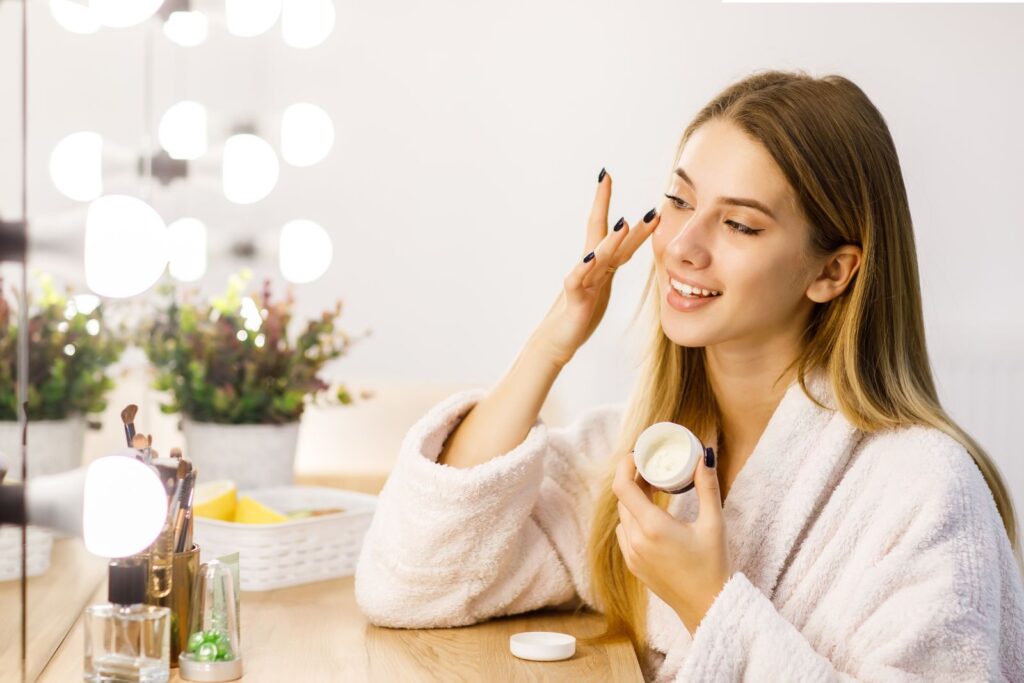Keeping your skin healthy and glowing is more than just a trend—it’s a lifestyle. As we head into 2025, the skincare world is buzzing with ingredients that promise transformative results. But which ones are worth the hype? Here are the top five skincare ingredients you need in your routine to stay ahead in your beauty game.
The Importance of Choosing the Right Skincare Ingredients
Why Skincare Ingredients Matter
Think of skincare as a recipe—each ingredient serves a specific purpose. The right ingredients not only enhance your skin’s health but also address specific concerns like acne, aging, or dryness. Ignoring this step is like cooking without knowing the recipe—risky and rarely successful.
Moreover, not all ingredients are skin-friendly. Harsh chemicals and allergens can do more harm than good. That’s why understanding the power of active ingredients is essential.
Skincare Trends Shaping 2025
2025 is all about personalization. Skincare is moving away from a one-size-fits-all approach toward scientifically crafted formulations tailored to individual needs. The balance between natural and synthetic ingredients is also evolving, with consumers seeking safety, efficacy, and sustainability.
Ingredient 1: Niacinamide
What Is Niacinamide?
Niacinamide, also known as Vitamin B3, is a water-soluble vitamin that has taken the skincare industry by storm. It works like a multitool, addressing various skin concerns without overwhelming the skin.
Benefits of Niacinamide
Niacinamide is celebrated for its ability to:
- Soothe inflammation: Perfect for calming redness caused by acne or rosacea.
- Strengthen the skin barrier: It locks in moisture and keeps irritants at bay.
- Minimize pores and fine lines: Regular use results in smoother, more refined skin.
How to Incorporate Niacinamide in Your Routine
Use a niacinamide serum after cleansing and before moisturizing. Look for products with a concentration between 5–10% for best results. Pair it with hyaluronic acid for added hydration or peptides to amplify anti-aging effects.

Ingredient 2: Hyaluronic Acid
The Science Behind Hyaluronic Acid
Hyaluronic acid (HA) is your skin’s hydration hero. Known for its ability to hold up to 1,000 times its weight in water, HA keeps your skin plump, smooth, and youthful. It comes in different molecular weights, each targeting various skin layers.
Benefits for All Skin Types
No matter your skin type, hyaluronic acid delivers:
- Deep hydration: Banish dryness and flakiness for good.
- Plumping effects: Say goodbye to fine lines caused by dehydration.
- Improved elasticity: Skin feels firmer and looks younger.
Effective Usage Tips
Apply HA on damp skin to maximize its hydration potential. Layer a moisturizer on top to seal in the moisture. Avoid mixing HA with heavy oils, as this can reduce its effectiveness.
Ingredient 3: Retinol
What Is Retinol?
Retinol, a derivative of Vitamin A, is often hailed as the gold standard in skincare. It’s a go-to ingredient for tackling signs of aging, acne, and uneven skin tone.
Retinol Benefits
Retinol works by increasing cell turnover and stimulating collagen production. It can:
- Reduce wrinkles and fine lines: A must-have for an anti-aging routine.
- Clear acne: By unclogging pores and preventing breakouts.
- Brighten skin tone: Fades dark spots and uneven pigmentation.
Tips for Using Retinol Safely
Start with a low concentration (0.3–0.5%) and gradually increase usage. Always follow with a moisturizer and sunscreen to protect your skin from potential sensitivity.
https://youtu.be/fOsF2O6Dy4E?si=7l4rdaddIqDllQnP
Ingredient 4: Vitamin C
Understanding Vitamin C
Vitamin C is a potent antioxidant that protects your skin from environmental aggressors. Its various forms, like L-ascorbic acid, make it a versatile choice for brightening and protecting the skin.
https://blissfultrend.com/stay-fit-with-minimal-exercise-at-home/
Top Benefits of Vitamin C
- Brightens dull skin: Reveals a radiant, even complexion.
- Fades hyperpigmentation: Reduces dark spots and acne scars.
- Protects from UV damage: Shields your skin from free radicals.
Best Practices for Vitamin C Use
Use Vitamin C in your morning routine before applying sunscreen. Ensure the product comes in an opaque, air-tight container to preserve its potency.

Ingredient 5: Peptides
What Are Peptides?
Peptides are chains of amino acids that form the building blocks of proteins like collagen and elastin. They signal your skin to repair itself, making them a game-changer for anti-aging.
Benefits of Peptides for Skin
Peptides can:
- Boost collagen production: Reduce wrinkles and sagging.
- Enhance skin repair: Promote faster healing and improved texture.
- Improve hydration: Support the skin barrier for better moisture retention.
Incorporating Peptides into Your Skincare Routine
Look for peptide-based serums or moisturizers. Combine them with niacinamide or hyaluronic acid for enhanced benefits.
Conclusion
Incorporating these top five skincare ingredients—Niacinamide, Hyaluronic Acid, Retinol, Vitamin C, and Peptides—into your routine will help you achieve healthy, radiant skin in 2025. By understanding each ingredient’s unique benefits and proper usage, you can craft a routine that addresses your skin’s needs while staying on top of trends.
FAQs
What is the best ingredient for sensitive skin?
Niacinamide is excellent for soothing and strengthening sensitive skin.
Can I use all these ingredients together in one routine?
Yes, but introduce them gradually to avoid irritation and ensure compatibility.
How do I know which ingredient to prioritize?
Focus on your skin concerns. For hydration, go for hyaluronic acid; for anti-aging, prioritize retinol and peptides.
Are natural ingredients always better than synthetic ones?
Not necessarily. The safety and efficacy of an ingredient matter more than its origin.
How often should I update my skincare routine?
Review your routine every 6–12 months or when your skin’s needs change.


